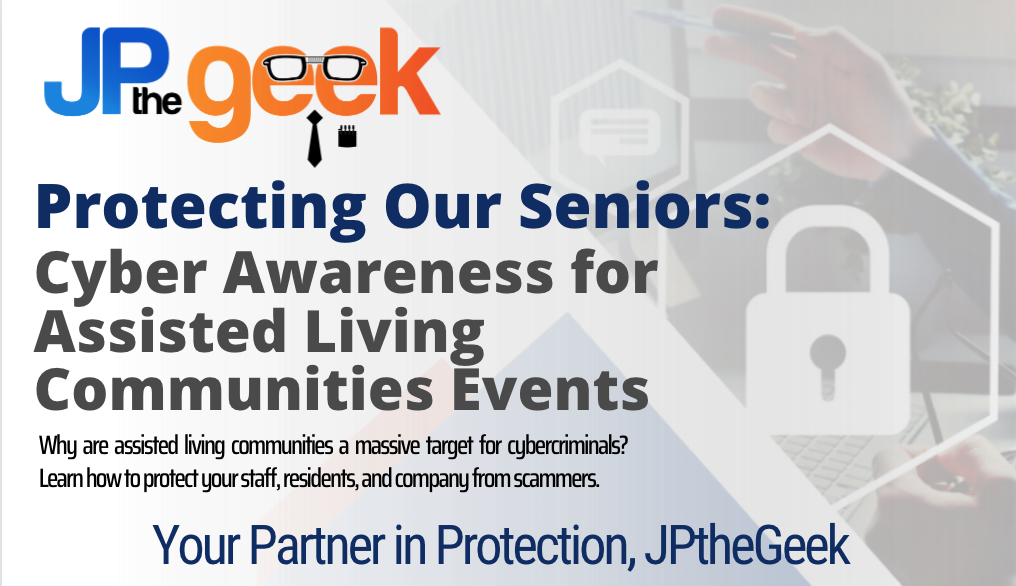Cyber Awareness Tips for Senior Living Communities
Cyber Awareness Tips for Senior Living Communities
1 min read
JPtheGeek Apr 10, 2024 10:00:00 AM

In recent years, the Internet has become an integral part of our daily lives, offering countless opportunities for communication, entertainment, and convenience. However, with these benefits come significant risks, especially for vulnerable populations such as those residing in assisted living communities. Seniors are increasingly becoming targets for scammers and hackers, making cyber awareness more crucial than ever.
Why Are Assisted Living Communities Targeted?
Assisted living communities often house individuals who may be less familiar with technology or more trusting of unfamiliar online interactions. Additionally, seniors may have accumulated savings or assets over their lifetimes, making them attractive targets for financial scams. Here are a few reasons why seniors in assisted living communities are commonly targeted by scammers and hackers:
Limited Tech Savvy: Many seniors did not grow up with the internet and may be less familiar with online safety practices, making them more susceptible to online scams and phishing attempts.
Trusting Nature: Seniors often come from a generation where trust was more implicit, making them more likely to believe fraudulent schemes or requests for personal information.
Financial Resources: Seniors may have retirement savings, pensions, or assets that scammers seek to exploit through various financial scams, such as investment fraud or identity theft.
Isolation: Seniors in assisted living communities may experience feelings of loneliness or isolation, making them more receptive to online interactions and potentially falling victim to scams disguised as companionship or support.
How Can We Protect Assisted Living Communities?
While seniors in assisted living communities may be at higher risk of online scams, there are steps we can take to protect them and promote cyber awareness:
Education and Training: Provide residents, staff, and caregivers with regular workshops and training sessions on online safety, including how to recognize common scams and phishing attempts.
Tech Support: Offer ongoing technical support and assistance to help seniors navigate the internet safely, update software, and install security measures on their devices.
Community Engagement: Foster a sense of community and support among residents to reduce feelings of isolation and vulnerability to online scams that prey on loneliness.
Regular Communication: Keep residents informed about the latest online threats and scams through newsletters, bulletins, or community meetings, empowering them to stay vigilant and protect themselves online.
Collaboration: Work together with cybersecurity experts, local authorities, and technology companies to develop tailored solutions and resources for assisted living communities.
By raising awareness, providing support, and fostering a culture of cyber safety, we can help protect seniors in assisted living communities from falling victim to online scams and ensure they can enjoy the benefits of the internet safely and securely.
Stay informed, stay safe!

Cyber Awareness Tips for Senior Living Communities

As tax season approaches, Certified Public Accountants (CPAs) find themselves immersed in a flurry of financial activities. While managing sensitive...

Safeguarding Seniors: Cyber Awareness Events with JPtheGeek and Baxter YMCA